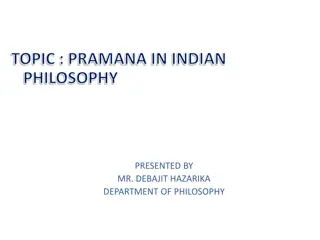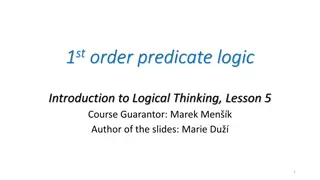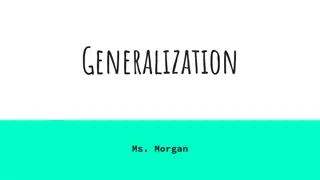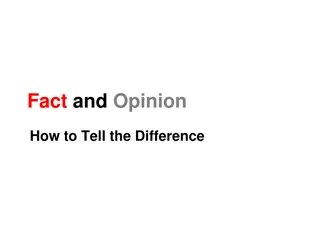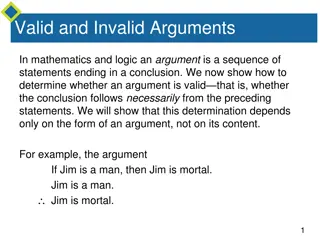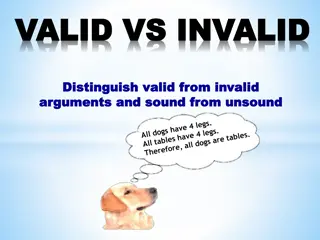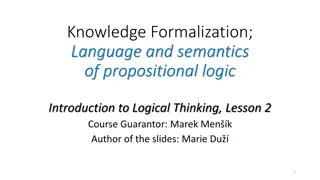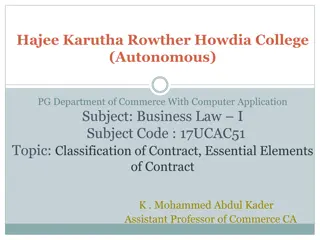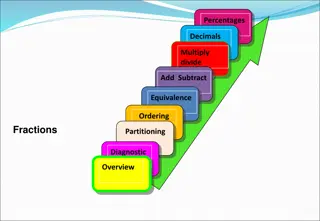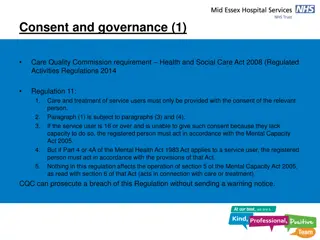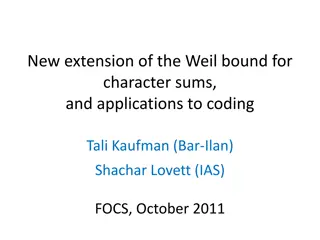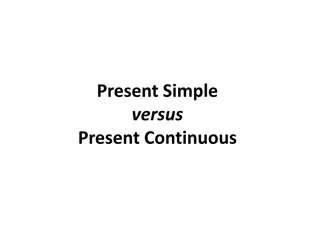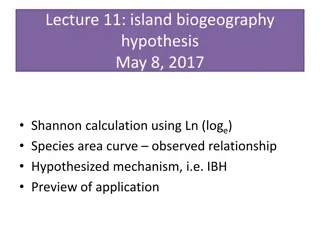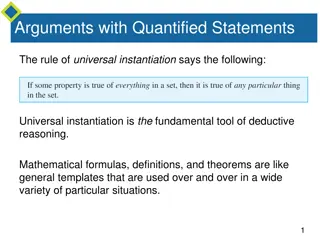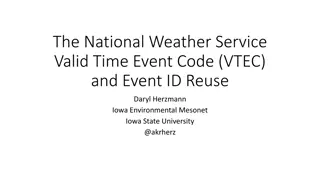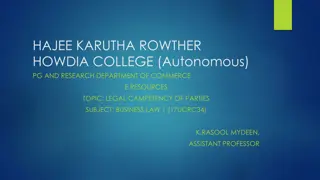Understanding Generalizations and Differentiating Between Valid and Faulty Ones
Generalizations are broad statements about groups of people or things sharing common traits. While some generalizations can be valid, supported by facts and logic, others may be faulty, lacking evidence and prone to inaccuracies. It's essential to use clue words like "all," "always," and "never" cautiously, as they can lead to faulty generalizations. By discerning between valid and faulty generalizations, we can improve our understanding and communication effectively.
Download Presentation

Please find below an Image/Link to download the presentation.
The content on the website is provided AS IS for your information and personal use only. It may not be sold, licensed, or shared on other websites without obtaining consent from the author. Download presentation by click this link. If you encounter any issues during the download, it is possible that the publisher has removed the file from their server.
E N D
Presentation Transcript
Generalization Ms. Morgan
What is a generalization? A generalization is a broad statement about what a group of people or things have in common. For example, using what you know and have observed you could generalize by saying, Most people in the United States greet each other with a handshake.
There are good and bad generalizations. You could say, Most people in the United States greet each other with a handshake. That s because it s the customary greeting in America and it s supported by fact. You should not say, All people in the United States greet each other with a handshake. Saying all means everybody, and that s unlikely to be true.
Clue Words to Help Find Generalizations All Always Never Most Many Sometimes Generally
Be Careful Be careful when using the words all, no, none, everyone, nobody, always, and never. These words are clue words that generally show bad generalizations. Always and never are very strong words. Bad generalizations might be faulty generalization.
Valid Generalizations Valid means true. Supported by facts. Uses logic and reasoning. Proven with several examples.
Faulty Generalizations Faulty means false. Not supported by facts. Watch for the key words. None, all, always, never, everyone, nobody. Just one exception can prove a generalization false.
Ice cream is everyones favorite dessert. What is wrong with this generalization? How could you make it a valid generalization?
Valid or Faulty Generalizations All high school students love sports and movies. Teenagers sometimes dress in messy clothes. Children in large families never get enough attention. Many people love tacos. A lot of students are enjoying being at home. Children always want to wake up at seven in the morning. Most teachers enjoy their summer vacations.
Remember! Generalizations are broad statements. Some are valid. Some are faulty. Valid generalizations are supported by facts, examples, and logical thinking. Watch out for words like all or never.



